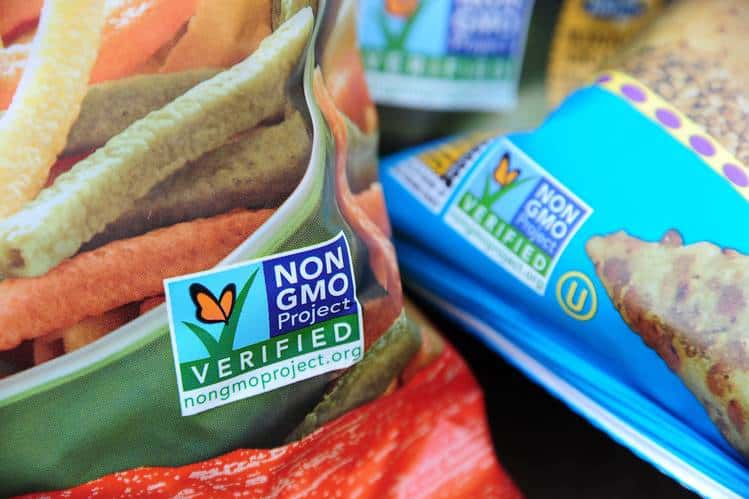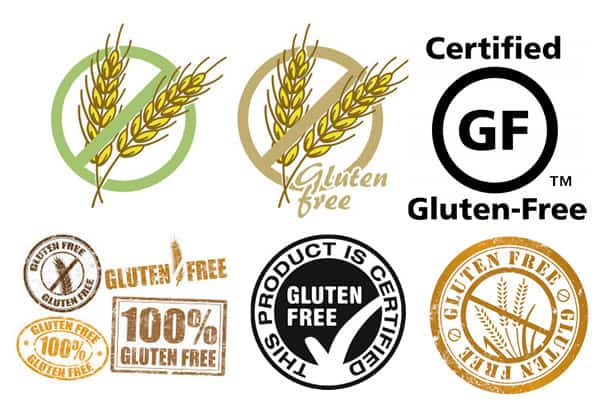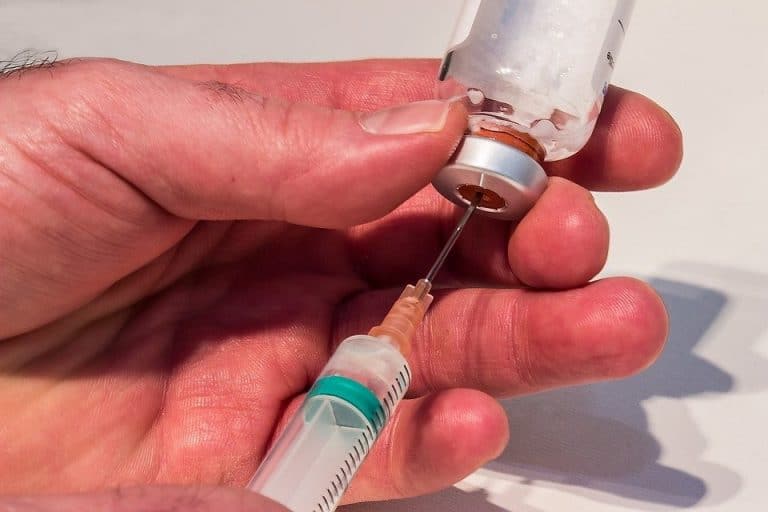What is a leaky gut and what are the symptoms?
By Abby Courtenay, RD
You can feel something is wrong. You have a few nonspecific symptoms, and no one can seem to pinpoint the cause. The good news is that you are definitely not alone. People all over the country experience a vast number of medically unexplained symptoms. I see this scenario play out so frequently. While symptoms like these can originate from a number of diseases, if your doctors have ruled them all out, it is definitely time to address the elephant in the room. Your diet and gut health.
We linked an astonishing number of diseases to poor gut health and we are only now scratching the surface. Let’s explore why our gut might become ‘leaky’, what symptoms you may experience, and start piecing together a plan to put you on the path to recovery.
Understanding ‘leaky gut’
What is a leaky gut? The gastrointestinal tract (or GIT) comprises a continuous muscular tube that runs from your mouth to your anus. Once nutrients are small enough to be absorbed, they move from the inside of the tube (known as the lumen) towards the outside where they diffuse into your bloodstream and get transported to the cells that need energy and nutrients. The body is cleverly designed to prevent unwanted substances from being passed into the bloodstream and this is where the intestinal barrier fits in.
This barrier includes 3 distinct layers which allow certain nutrients and substances to pass through, while keeping the dangerous ones at bay. Basically, your body is not taking any chances. If these barriers were not in place, we would be at the mercy of our external environment.
What causes a leaky gut?
An increase in intestinal permeability (or a leaky gut) is caused when special proteins in the intestinal barrier called tight junctions, malfunction. Essentially tight junctions help to keep the cells close together, if they are close together unwanted substances find it physically difficult to get through. This malfunction may allow dangerous substances to pass through into the layers underneath and thus trigger an immune response and subsequent inflammation (and related symptoms).
Dangerous substances that have been ingested with our food sources include:
- Toxins
- Pathogenic (bad) bacteria
- Fungi and
- Parasites
How do I know if I have a leaky gut?
There are no one-size-fits all symptoms for leaky gut. Often it is a process of elimination. First, meet with your health care provider to rule out other causes for your symptoms.
Intestinal permeability is related to the following conditions:
- Celiac disease
- Type 1 diabetes
- Inflammatory bowel disease (IBD)
- Ulcerative colitis
- Crohn’s disease
- Irritable bowel syndrome (IBS)
- Multiple sclerosis
- Rheumatoid arthritis
- HIV
If you suffer from any of these diseases, you probably have a leaky gut. However, even if you don’t, you may have a compromised gut. Let’s review the symptoms that may point to poor gut health and a leaky gut.
What are the symptoms of a leaky gut?
Your immune system attacks and eliminates any substances that are identified as foreign or harmful. The result of this constant internal war is inflammation. More foreign substances identified results in more inflammation.
Some claim that a leaky gut is associated with conditions like:
- Tiredness and chronic fatigue syndrome
- Migraines
- Fibromyalgia (pain all over the body)
- Allergies and asthma
- Depression
- Skin disorders like scleroderma and eczema
We are currently unsure if leaky gut causes or simply worsens all these diseases and conditions and research is ongoing. However, optimizing your diet can only improve your health. We believe it’s a good place to start!
What can we do about this?
One of the key factors in keeping your gut happy and healthy is the composition of the bacteria in your gut.
These little guys (aka your microbiome) are your intestinal community of microorganisms. They estimate that for every human cell you have, there are 10 more microbes tagging along! That means that there are easily more than a 100 trillion of them inside of you! Most live in your GIT and your colon. Your genes, environment, diet, and disease dictate their composition. An imbalance of beneficial and harmful bacteria in the colon is known as dysbiosis.
The good bacteria in your gut protect you in the following ways:
- They ferment undigested fibre and produce special substances called short chain fatty acids (SCFAs). SCFAs have two main benefits, (1) they feed and strengthen the cells that form your intestinal barrier The stronger these are, the less likely it is that the tight junctions will malfunction. (2) They have beneficial whole body/ systemic effects like modulating your immune system. This means that they help your immune system to react appropriately, not overreact or under-react.
- The good bacteria also compete for nutrients and occupy attachment sides. This means that if they are thriving, there won’t be enough nutrients or space available for bad bacteria to grow.
- They produce substances that actively kill off the bad bacteria.
Basically, if you keep your microbiome happy you might maintain and support your tight junctions and also reduce the number of bad bacteria that can infiltrate into your bloodstream.
Here are our top 5 tips to implement to fix your leaky gut:
- Slowly increase your fiber and antioxidant intake by including more fruits, vegetables, whole grains and legumes.
- Reduce your intake of ultra processed foods and choose whole foods more frequently.
- Eat at regular times (i.e. on a schedule) and remember to eat slowly and mindfully.
- Drink more water and limit added sugar and non-nutritive sweeteners (like soda or sugar in your tea and coffee).
- Consider taking a probiotic when taking antibiotics.
If this list intrigues you, head on over to our article ‘Healing the gut naturally’ wherewe go into detail on how you can check your own diet for warning signs that can predispose you to bad gut health (including a leaky gut).
What are the signs you need probiotics?
Probiotic products are safe for those in good health. If you are experiencing the symptoms listed above (or any gastrointestinal symptoms like diarrhea, constipation or excessive gassiness), and are on a quest to improve your gut health, taking a general probiotic supplement can help. You want to increase the diversity of the microorganisms that inhabit your microbiome so keep an eye out for a multi-strain probiotic that contains between 1-10 billion CFUs per dose.
Check out our article on the ‘Long-term effects of probiotics’ to learn more about indications, contraindications and dosage.
How long does a leaky gut take to heal?
This all depends on if there is an underlying cause, like the ones mentioned above. If there is, then it will vary depending on the severity and stage of the disease and the type of treatment needed to get the disease under control. The microbiome can change composition in as little as 1 day following extreme diets such as entirely plant- or animal-based. Some research suggests that your microbiome can take up to one year before it returns to normal after a course of antibiotics.
The length it will take you to feel better will vary amongst individuals, but my personal advice is to give it at least 2 weeks to 1 month to assess the impact.
Is there a test for leaky gut?
We use several tests in a clinical setting to measure intestinal permeability.
These tests essentially check to see if electrolytes or sugars of different molecular weights can pass through the intestinal barrier. Interpret test findings with caution because:
- They have not been well-studied in chronic diseases.
- Using this method is only one way to measure leaky gut. It doesn’t provide us with a complete picture. Remember that several factors affect a leaky gut.
- The sensitivity of the tests is lacking. This means that it cannot detect everyone who is positive and there may be a high rate of false negatives.
Taking a specialized test to diagnose a leaky gut may be helpful. And whatever the outcome, changing your diet and lifestyle for the better can always be on your agenda.
Conclusion
Whether you have a leaky gut, a compromised gut or are just looking to get healthier, boosting your gut health will never do you any harm. Our modern diets and lifestyles put us at risk of a variety of diseases and disorders, and it is time to put our health back on track. Changing your diet and lifestyle and taking the correct supplements can go a long way to helping you feel like the best version of you possible. Don’t hesitate, start making the changes today!
FAQ?
What is a leaky gut?
This condition is when the lining of the gut is damaged and the barrier does not function optimally. Small holes become too big and allow harmful substances to enter into your system.
What are the symptoms of leaky gut?
Symptoms vary depending on the cause of leaky gut. It can cause inflammation in the GI system and cause bloating, sensitivities to food, fatigue, skin issues, and other digestive concerns.
What are ways you can improve leaky gut?
The first way you can improve the symptoms of leaky gut is to change your diet and add fiber rich foods into your meals. Drinking water and avoiding drinks with high amounts of sugar can also help alleviate symptoms.
References
Mahan LK, Raymond JL. 2017. Krause’s food & the nutrition care process.
Bischoff SC, Barbara G, Buurman W, Ockhuizen T, Schulzke JD, Serino M, et al. Intestinal permeability – a new target for disease prevention and therapy. BMC Gastroenterol. 2014 Nov 18;14:189. doi: 10.1186/s12876-014-0189-7. Abstract available from: https://www.ncbi.nlm.nih.gov/pubmed/25407511
Hollander D. Intestinal permeability, leaky gut, and intestinal disorders. Curr Gastroenterol Rep. 1999 Oct;1(5):410-6. Abstract available from: https://www.ncbi.nlm.nih.gov/pubmed/10980980
Mu Q, Kirby J, Reilly CM, Luo XM. Leaky gut as a danger signal for autoimmune diseases. Front Immunol. 2017 May 23;8:598. doi: 10.3389/fimmu.2017.00598. eCollection 2017. Abstract available from: https://www.ncbi.nlm.nih.gov/pubmed/28588585
Baümler AJ, Sperandio V. Interactions between the microbiota and pathogenic bacteria in the gut. Nature. 2016 Jul 7;535(7610):85-93. doi: 10.1038/nature18849. Abstract available from: https://www.ncbi.nlm.nih.gov/pubmed/27383983
Ramakrishna BS. Role of the gut microbiota in human nutrition and metabolism. J Gastroenterol Hepatol. 2013 Dec;28 Suppl 4:9-17. doi: 10.1111/jgh.12294. Abstract available from:https://www.ncbi.nlm.nih.gov/pubmed/24251697
De Santis S, Cavalcanti E, Mastronardi M, Jirillo E, Chieppa M. Nutritional keys for intestinal barrier modulation. Front Immunol. 2015 Dec 7;6:612. doi: 10.3389/fimmu.2015.00612. eCollection 2015. Abstract available from: https://www.ncbi.nlm.nih.gov/pubmed/26697008
Denno DM, VanBuskirk K, Nelson ZC, Musser CA, Hay Burgess DC, Tarr PI. Use of the lactulose to mannitol ratio to evaluate childhood environmental enteric dysfunction: a systematic review. Clin Infect Dis. 2014 Nov 1;59 Suppl 4:S213-9. doi: 10.1093/cid/ciu541. Abstract available from: https://pubmed.ncbi.nlm.nih.gov/25305289/
Quigley, EM. Leaky gut-concept or clinical entity? Curr Opin Gastroenterol. 2016 Mar;32(2):74-9. doi: 10.1097/MOG.0000000000000243. Abstract available from: https://www.ncbi.nlm.nih.gov/pubmed/26760399
Disclaimer: While our team of medical expert writers makes every effort to convey the correct, relevant, and most up-to-date information, you should never disregard advice given to you by your medical practitioner or delay seeking medical assistance because of something you have read on Gutsify or received in correspondence from Gutsify. Please refer to our Terms and Conditions.








